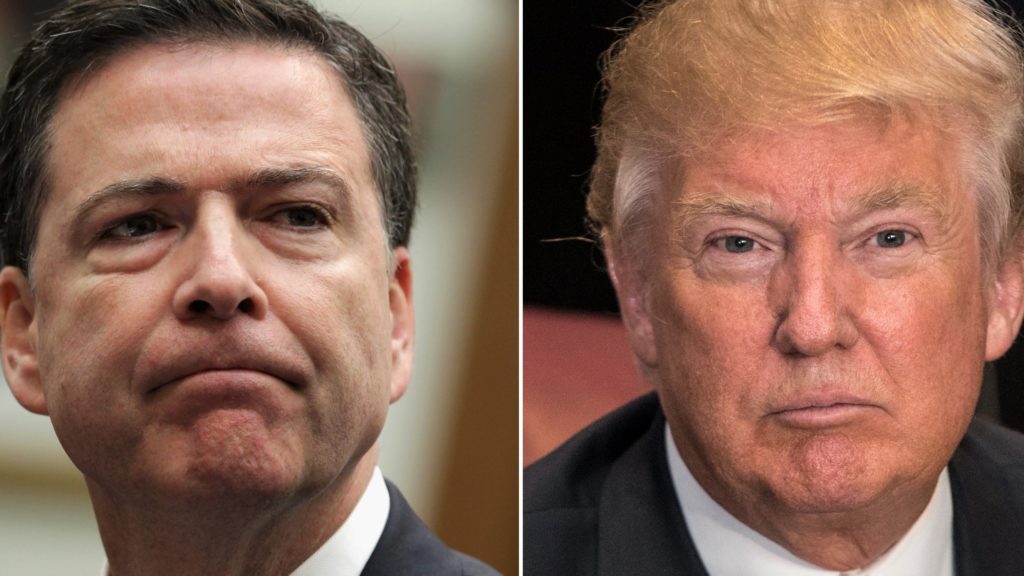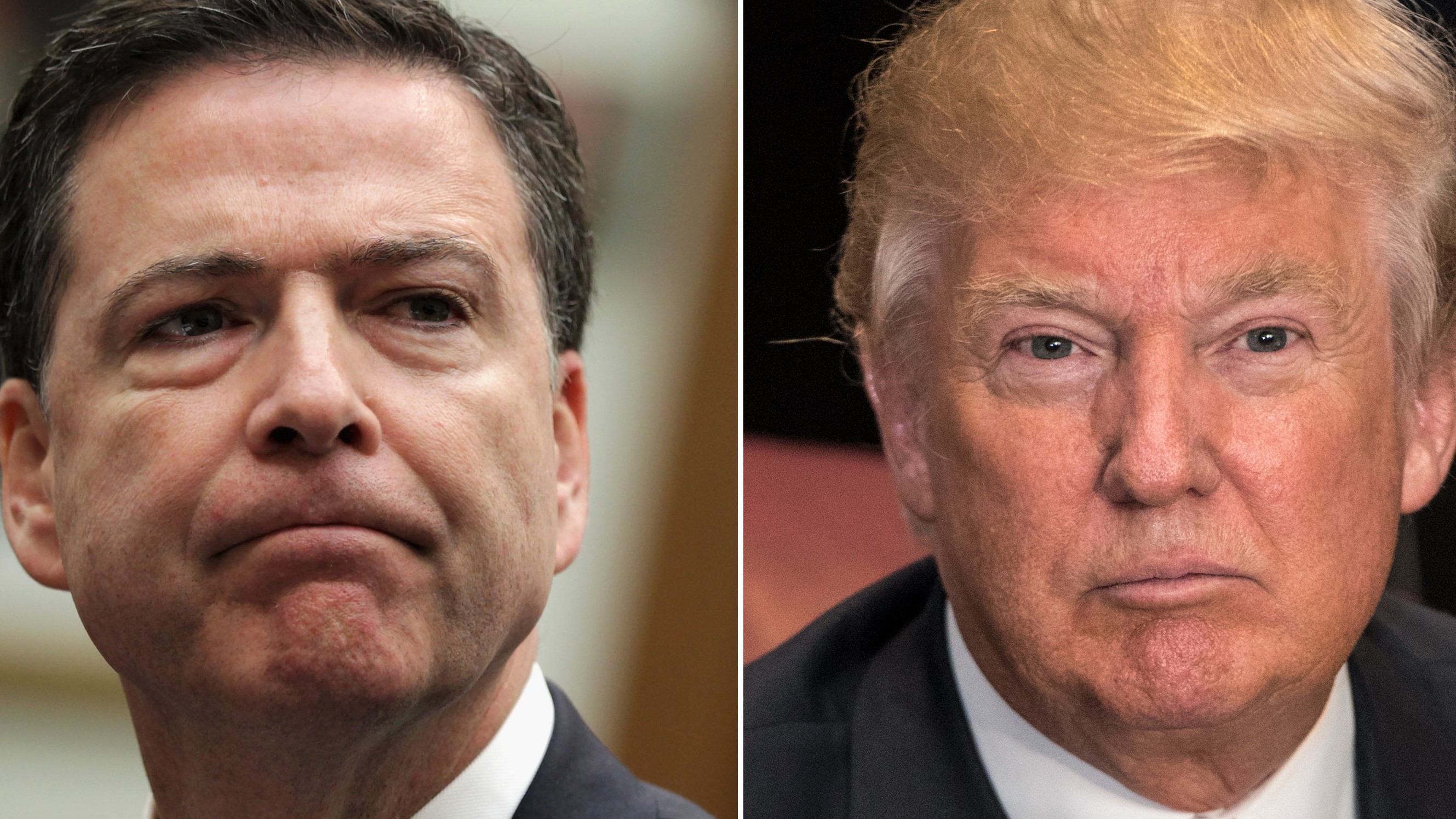
On May 9, President Trump fired FBI Director James Comey.
“…it’s a story,” National Public Radio (NPR) reports (May 15), “that has now continued past his termination, with a winding narrative that has seen the president make veiled threats and contradict his own staff as well as the vice president.”
On May 18, President Trump tweeted: “This is the single greatest witch hunt of a politician in American history!”
After the Washington Post (June 14), broke the story that Special Counsel Robert Mueller is now opening an investigation into possible obstruction of justice by President Trump, early Thursday morning, Trump again, took to twitter:
“They made up a phony collusion with the Russians story, found zero proof, so now they go for obstruction of justice on the phony story. Nice.”
How did we get here?
On July 2, 2016, Trump tweets:
“It was just announced-by sources-that no charges will be brought against Crooked Hillary Clinton. Like I said, the system is totally rigged!”
It’s a word that candidate Trump used extensively at rallies speaking to supporters who then chanted: “Lock Her Up!”
October 28: When the FBI discovers a trove of e-mails on former NY Congressman Anthony Weiner’s laptop, FBI Director Comey announces that he has re-opened Clinton’s e-mail investigation.
October 31: At a Michigan rally, Trump says, “…It took a lot of guts. I really disagreed with him. I was not his [Comey’s] fan. I tell you what, what he did, he brought back his reputation. He brought it back….”
November 6: Trump criticizes Comey again after the FBI director confirms that the e-mails found on Weiner’s laptop were duplicates the FBI had already examined.
November 13: In an interview with Lesley Stahl for 60 Minutes, Trump says, “I respect him [Comey] a lot. I respect the FBI a lot.”
January 22, 2017: On his second day in office, Trump asks Comey to attend a law enforcement event at the White House. It was at this televised event that Trump told Comey, “I look forward to working with you.”
February 24: One month later, Trump angrily tweets that the FBI is unable to stop leaks.
“The tweets came,” NBC reports (May 10), “after media reports claimed the White House had requested that the FBI refute claims that members of Trump’s campaign had been in touch with Russia, according to Reuters. The FBI declined to refute the claims.”
March 5: Comey debunks claims that Trump made that former President Obama had Trump’s phones tapped.
April 12: In an interview with Maria Bartiromo of Fox Business, Trump says, “It’s not too late [to ask Comey to step down], but, you know, I have confidence in him. We’ll see what happens, you know, it’s going to be interesting.”
May 3: In a two-parter, Trump tweets:
“FBI Director Comey was the best thing that ever happened to Hillary Clinton in that he gave her a free pass for many bad deeds! The phony…
“…Trump/Russia story was an excuse used by the Democrats as justification for losing the election. Perhaps Trump just ran a great campaign?”
May 9: Trump fires Comey and uses, as his initial reasoning, Comey’s handling of the Clinton e-mail issue as stated in a letter by Deputy Attorney General Rod Rosenstein with a concurring cover letter by AG Jeff Sessions. (Sessions purportedly recused himself from all decision-making related to DOJ’s investigation in Trump’s ties with Russia. Not this time.)
May 11: In a televised interview with NBC News anchor Lester Holt, Trump admits, “Regardless of recommendation, I was going to fire Comey,” directly contradicting his earlier reasoning.
May 17: Deputy Attorney General Rosenstein appoints former FBI Director Robert Mueller as Special Counsel to oversee the investigation into ties between President Trump’s campaign and Russian officials.
June 8: Comey testifies before the U.S. Senate Committee on Intelligence regarding his interactions with Trump before and after his election.
As reported by NPR, Comey said “…he began documenting his numerous, and often uncomfortable, conversations with Trump — in which the president asked for his ‘loyalty’ and for him to scuttle the FBI’s investigation into former Trump national security adviser Michael Flynn — because he ‘was honestly concerned (Trump) might lie’ about their meetings.”
When asked why he kept written notes on his meetings with Trump, Comey told the committee “I knew there might come a day when I might need a record of what happened not just to defend myself but also the FBI.”
After Comey testifies, Trump’s personal lawyer, Marc Kasowitz told the press that the most important fact to come out of the former director’s testimony was that he told Trump on three separate occasions that he was not under investigation. However, Kasowitz said that “the president never told Comey, ‘I need loyalty, I expect loyalty,’ in form or substance,” Kasowitz said, according to NPR (June 8).
One of the key points Kasowitz stressed was: “Mr. Comey admitted that he unilaterally and surreptitiously made unauthorized disclosures to the press of privileged communications with the president.”
Politifact examined this and three other statements the Trump attorney made.
Regarding the above statement, Politifact writes (June 9), “ ‘The case for applying the privilege is strongest when the president is discussing the exercise of one of his or her powers with a member of the White House staff,’ said Edward Imwinkelried, an expert in evidentiary law at UC Davis. ‘However, you can make a strong case for extending the privilege to a conversation between the president and a high-ranking federal official outside the White House staff, so long as the topic of the conversation relates to a subject on which the president has power to act.’
“Imwinkelried said that Trump and Comey’s conversations enjoyed some expectation that they wouldn’t be shared without permission, and that Trump was the holder of the privilege. But the protection is not absolute and that Trump might have waived it with his own statements.
“Lisa Griffin at Duke University School of Law said Trump put that protection at risk. ‘Where the president has already described conversations he had with Director Comey in his tweets or other public statements, then with respect to what has been disclosed, there is no longer any privilege,’ Griffin said.
“ ‘Absent revelations of classified material or certain disclosures related to national defense or governmental financial interests, there is no crime that stems from discussing privileged communications,’ Griffin said.”
Of the four statements made by Kasowitz, Politifact challenged three of the four as inaccurate.
June 15: Trump tweets:
“They made up a phony collusion with the Russians story, found zero proof, so now they go for obstruction of justice on the phony story. Nice”
About an hour later, he added:
“You are witnessing the single greatest WITCH HUNT in American political history – led by some very bad and conflicted people! #MAGA.”
(I had to look up to determine that MAGA means: Make America Great Again.)
Monday: My conclusions
Comments










